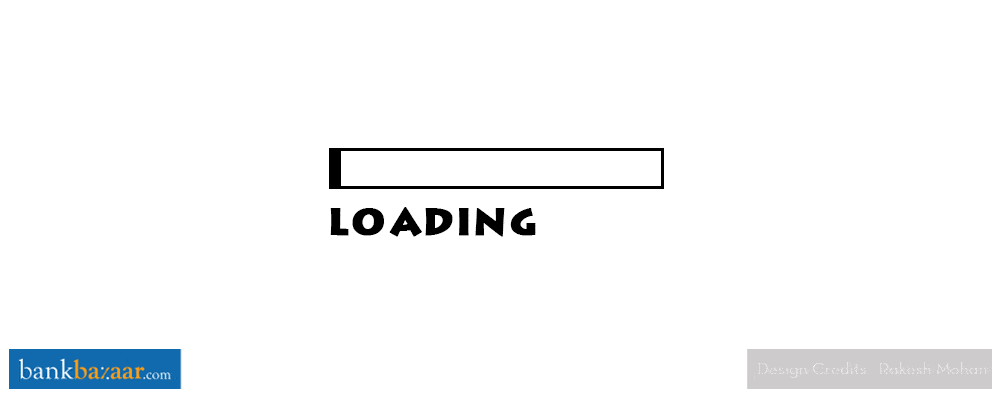We all know a good Credit Score from a bad one. But, what is a zero Credit Score? Read on to find out and more!

We know a Credit Score is a three digit number that reveals your financial credibility and past financial behaviour.
If you use money responsibly, especially funds borrowed from banks, you are generally deemed to be a credible person. If you happen to be one of these people, there’s a good chance your Credit Score will be in the upper range of 750 or above.
However, if you are someone who frequently misses paying Credit Cards bills or loan EMIs on time, then your profile will be looked at with some reservation before you get a line of credit. Also, your score will be in the lower ranges i.e. the red zone of below 500.
Your Credit Score is not a matter of chance. You have to build it over time by following the right financial habits. Sometimes, a person might even have a zero Credit Score or an NA remark in their credit report. This isn’t necessarily a bad thing, although it could pose some challenges when you ask banks for credit.
Let’s take a closer look!
Additional Reading: How Does Bankruptcy Affect Your Credit Score?
A Mystery Solved
A zero Credit Score indicates an absence of credit history over the previous six months at least. It, however, does not mean that you don’t have a credit report. It just means that you don’t have a loan, or that you probably haven’t used your Credit Card in a long time. Your credit report and Credit Score are updated at regular intervals to factor in your latest credit behaviour.
Your credit behaviour is judged based on how you manage your Credit Card bills and loan EMIs. If you do not have any loan EMIs or Credit Card bills to pay, then after a certain period of time your Credit Score will appear as zero. Some credit agencies even use the term NA (not applicable) to denote the absence of a credit history.
There is another scenario in which your credit report might feature the NA remark. This is when you don’t have a Credit Score to begin with. Some credit rating agencies might even use a minus 1 (-1) to indicate the absence of a Credit Score.
Understanding The Difference
If you have a pile of unpaid Credit Card bills or loan EMIs, then you are sure to have a poor Credit Score in your credit report. On the other hand, an insufficient credit history means that you do not have any outstanding dues on your Credit Card and no loans to pay. You simply haven’t used credit in any form in a while.
Note: Not using credit does not equal to not paying your dues.
Additional Reading: How A Poor Personal Credit Score Can Damage Your Business
Repercussions
A zero Credit Score or a non-existent Credit Score isn’t necessarily a bad thing. But, it will certainly make it difficult for banks to extend a line of credit to you because they have no historical data to judge your credibility.
But, hey, at least you don’t come across as an irresponsible person who will never repay the money borrowed from banks. Remember, fixing your Credit Score is a lot harder when you’ve racked up a ton of debt that you haven’t paid off consistently.
How To Get Out Of The Zero Zone
If you have an unused Credit Card, then start using it. You need to build your credit history if you want a Credit Score that doesn’t resemble an egg.
If you don’t have a Credit Score to begin with, then apply for a Credit Card or take out a loan to get your score rolling. That’s just the first step. You can only get a good Credit Score when your repay your dues on time. We insist on it because being financially responsible not only helps you build a good score, but also keeps you far away from the all-engulfing quagmire of debt.
How to get a Credit Card or loan without a Credit Score?
Banks understand this dilemma. This is why most of them provide Credit Cards that are solely designed for the purpose of building a Credit Score. These Credit Cards either have a lower upper limit or are given against some form of collateral such as a Fixed Deposit. The latter type of cards are called Secured Credit Cards. The upper limit on these cards will be a certain percentage of the value of the collateral you pledge to the bank.
You can also apply for a secured Credit Card if you want to improve a bad Credit Score.
Once you get your Credit Card, make sure you use it wisely and pay your bills on time. This will surely help you build a good Credit Score. Once you have a good score, you can upgrade to a regular Credit Card with more features and benefits.
Additional Reading: Drama Lama in ‘Credit Score – The New Matchmaker’
Wondering where to check your Credit Score? Right here on BankBazaar.com! You can check your Experian Credit Score for absolutely free, as many times as you like. You will also be notified every time your Credit Score changes.